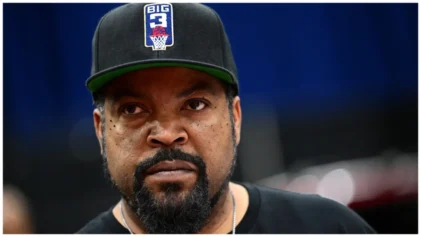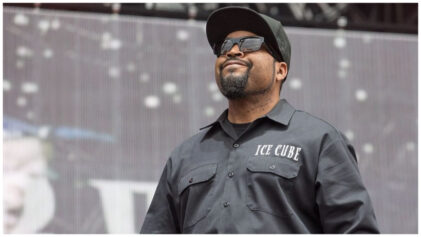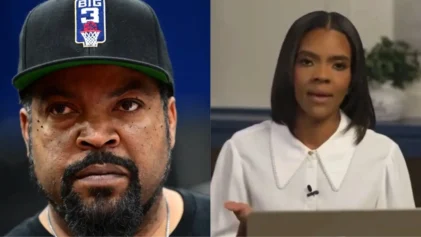This past Sunday, Rodney King died at age 47, closing the book on a troubled life burdened by one of the more tragic cases of unwanted celebrity in recent American history. Only two days prior to King’s death, the rapper and actor Ice Cube turned 43 years old, and 20 years ago no musical figure was more centrally and controversially tied to the riots that enfolded South Los Angeles in the wake of the King verdict. It was a connection that reached its culmination in November of 1992 with the release of The Predator, an album-length essay on insurrection whose historical specificity and raging force of purpose position leave it somewhere between a faded antique and a dusty but still-live grenade. In light of King’s passing, it seems worth cleaning off.
Ice Cube had been at the forefront of the “gangsta rap” genre since his visionary turn on N.W.A.’s 1988 breakthrough Straight Outta Compton, an album that did for Los Angeles rap what Meet the Beatles did for British rock and roll. When South Los Angeles convulsed on April 29, 1992, the moral panic swarming around gangsta rap and its practitioners made it both the ideal scapegoat and imagined soundtrack for what conservative America perceived as urban race war. Banning Body Count’s “Cop Killer” became a cause célèbre, even if it was a song far more people had heard of than had actually heard. Cube’s own “Black Korea” from 1991’s Death Certificate—an admittedly pretty deplorable piece of music, inspired by the shooting death of Natasha Harlins—was accused of inciting violence against Korean-Americans during the uprising.
The Predator was released in November of 1992 and would go on to sell two-million copies, a remarkable achievement given the narrowness of its subject matter. The album found Ice Cube consumed by the King affair, incessantly name-dropping the four unpunished officers (plus Daryl Gates and Willie Williams for good measure), explicitly menacing the 12 jurors who’d freed them, celebrating the chaos. “Riots ain’t nothing but diets for the system,” he declared, a precarious but stunning balance of theory and threat.
In a recent essay, Cord Jefferson went after Watch the Throne for Jay-Z and Kanye West’s appropriations of Black Power iconography, rightly calling bullshit on the suggestion that a penchant for Hublot watches bears any honest resemblance to the anti-capitalist revolutionary ideologies of Fred Hampton or Angela Davis. The question of hip-hop’s obligations to this intellectual tradition is hugely complicated and will probably never be satisfactorily answered, but 20 years ago its stakes seemed markedly different. Gangsta rap was a lot of things, all of which were outsized by definition: violent, swaggering, and breathlessly audacious, and far too often reprehensibly misogynistic, homophobic and racist. It was also, crucially, obsessed with police. No other genre of rap—and perhaps no genre of popular music, period—was marked by such explicit critiques of the state and state authority. And Ice Cube was its bleeding edge: The cover to Death Certificate featured Uncle Sam laid out on a mortuary slab.
Read the rest of this story on the Atlantic


